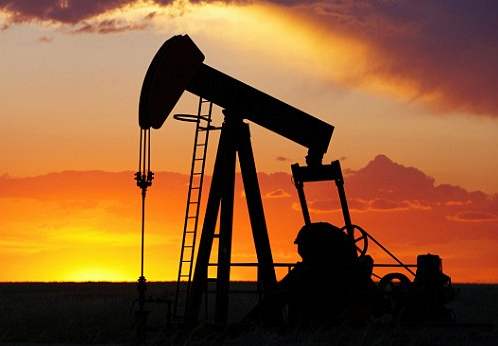According to Russian media, the second coVID-19 outbreak risks triggering a new "oil war".
Alexei Belogoryev, deputy director of the energy department at the Russian Institute of Energy and Finance, said Saudi Arabia's threat of a new oil war was just a bluff, and that "war" would be bad for Saudi Arabia in the first place.
Riyadh will launch a price war against Angola and Nigeria if they fail to comply with their Opec + obligations to cut production. That was the threat made by Abdelaziz bin Salman, Saudi Energy minister, during a video conference of Opec + countries in June. If the two countries don't abide by the agreement, he said, Saudi Arabia will let oil prices fall sharply to sway them.
Riyadh said in early June it would punish countries that did not comply with the deal. He was referring to Iraq, Nigeria, Angola and Kazakhstan, which failed to meet the quota in May but pledged to correct it in July. "We know who your buyers are," Abdul-Aziz told the offending countries.
"Saudi Arabia does not want to lower oil prices at all now because of budget constraints and the overall weak economic situation," Belogoryev said. The Oil war in March has left Saudi Arabia with a huge shortfall in revenues that will not be filled for a long time as international oil prices reach $65 - $70 a barrel to balance its budget. We are selling oil at a loss and obviously don't want to play a new dumping game."
"The threat of a new price war reveals relations within Opec and it is clearly a bluff on the part of Riyadh," he said. The Saudis' anger is understandable. In order for world oil prices to rise, Saudi Arabia would need to significantly exceed its production cuts. In fact, Saudi Arabia's efforts only fill the gap left by other countries' obligations. Threats have been made, but threats don't mean anything to Opec right now."
The oil war and its consequences
Saudi Arabia reportedly fought an oil war with Russia in March over Moscow's unwillingness to cut production to keep prices at $50 a barrel. The "Opec +" agreement, in place since 2016, was torn up, prompting Riyadh to boost production sharply and offer generous discounts on prices. Oil prices fell sharply. This is open dumping, and Russia has reacted with restraint, saying only that it has no intention of "fighting" anyone and wants dialogue.

The new Opec + agreement, which took effect in early May, will cut output by an average of 9.7 million barrels a day from the first phase through July. At Saudi Arabia's request in early June, the cuts were extended until August, and the saudis, whose budget had been hit hard by the price war, even took the unusual step of tripling household taxes and suspending cost-of-living subsidies for government employees, but failed to make up for lost income.
"There is some concern at the expert level that the threat of a new price war by Riyadh could force other members to abandon the agreement because the Saudis have been pressuring their partners openly. I don't think such concerns are necessary because everyone wants to maintain current oil prices. Any negative news about the new Opec + agreement could trigger another sharp drop in oil prices. And the Saudis' bravado may even invite them to be hit hard by falling oil prices. In many countries memories are still fresh of a series of national budgets being halved when oil prices fell below $20 in April. No sensible person could wish that to happen again. There is little chance of history repeating itself. Moreover, many countries in the Opec + framework are suffering from the epidemic, and the revenues from oil sales can make up for some of the losses."
The market awaits the end of the epidemic
Opec + countries are expected to cut output by 7.7 million barrels a day from August to the end of the year, and a further 5.8 million barrels a day in 2021 and the spring of 2022, the report said. The international market is expected to return to a normal balance of supply and demand before the expiration of the agreement, and most of the reserves will be consumed with daily oil.
So far, oil has stayed around $40 a barrel, while news of dwindling U.S. reserves has spurred oil prices higher. But experts believe oil prices will not keep rising, and many factors will depend on whether the world can soon contain the coVID-19 outbreak. Opening borders, resuming international trade and restarting tourism are needed.
"The oil price is now a little above its cost [of nearly $30 a barrel], largely thanks to the good news that a number of big countries are phasing out vaccination restrictions," Mr Belogoryev said. In addition, the decline in production in the United States has far exceeded expectations in the United States and international markets as a whole, as some American companies have failed to withstand competition from low oil prices and have gone bankrupt. Everything will depend on oil demand in the international market. On the one hand, Europe intends to gradually open its borders. But on the other hand, some Asian countries have re-blockaded cities because of the epidemic. Globally, the epidemic as a whole has not been brought under control, so the risks remain higher than expected. Demand determines oil prices, and demand will depend on how the outbreak is contained in the summer and fall. The epidemic will determine whether oil prices end the year at $30 a barrel or $45 a barrel. The oil price will respond to the elimination of the pandemic worldwide."




